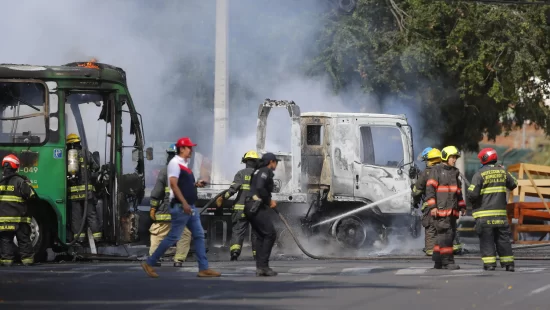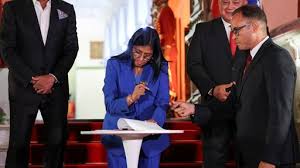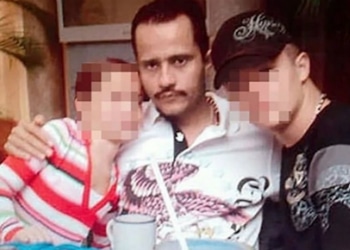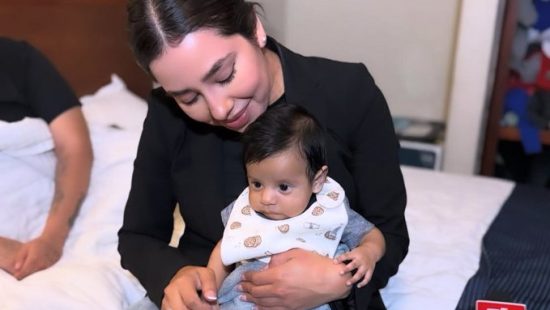The controversial regional Mexican singer faces backlash for sharing an image with a visible firearm during a Father’s Day celebration, reigniting debates over narcocorridos and public influence.
Regional Mexican music singer Luis R. Conríquez has ignited a wave of criticism after sharing a photo on Instagram showing him holding his young daughter while visibly carrying a pistol at a family gathering. The photo, posted on Sunday, June 23, in celebration of Father’s Day, was met with backlash on social media for featuring a firearm in a scene involving a child.
The image shows Conríquez at a Father’s Day party, standing next to a table with a cake, carrying his daughter in one arm. Tucked into his waistband on the right side of his pants is a visible firearm. The photo, shared from his verified Instagram account, prompted concern and criticism about the presence of a gun in a family-oriented moment.
Among the many comments, some of the most pointed read:
- “A baby’s party and you’re packing a pistol?”
- “What does your gun have to do with a photo with your daughter?”
Conríquez responded briefly to the backlash with a comment under the post:
“It’s Father’s Day, sweetheart.”
Luis Roberto Conríquez Magdaleno, born on February 28, 1996, in Caborca, Sonora, has become one of the most recognizable voices in the subgenre of regional Mexican music known as “corridos bélicos” (or “war-style corridos”). This musical style is characterized by lyrics that reference members of criminal organizations, weaponry, power, and loyalty within organized crime.
Some of his most popular songs include:
- “Si no quieres no”, where he sings “A mí sí me mandan los Guzmánes” (“The Guzmáns do command me”)
- “A la orden de Archivaldo”, with the line “Meneamos todo el que se ponga renuente” (“We handle anyone who resists”)
- “Hay de dos”, where he directly references the Jalisco New Generation Cartel (CJNG): “Aquí andamos dando guerra, somos uno, la Nueva Generación” (“We’re waging war, we are one, the New Generation”).
Conríquez has collaborated with popular artists like Peso Pluma, La Adictiva, and Fuerza Regida, earning high rotation on digital music platforms and solidifying his influence in the new wave of corridos bélicos.
Despite his popularity, Conríquez’s lyrics have sparked controversy both on and off stage. A recent incident took place in April during his performance at the Feria Internacional del Caballo Texcoco (Texcoco International Horse Fair).
Before going on stage, Conríquez warned fans that he would not be performing narcocorridos due to restrictions imposed by authorities in the State of Mexico. He addressed fans via social media:
“A lot of people don’t understand and think we make the rules, but the truth is: there won’t be any corridos at shows from here on out, for any artist. Much love to those who support us — they’ll stick around even if we play bachata.”
During the concert, when Conríquez repeated the announcement live, many attendees booed him and threw objects into the arena. Videos posted online show audience members damaging sound equipment and stage props, while security personnel struggled to restore order.
The genre of corridos bélicos and narcocorridos has become a hot-button issue for local and state governments. In Sinaloa, Sonora, and Chihuahua, authorities have promoted sanctions or outright bans on performances featuring songs that reference criminal groups. While there is currently no federal law prohibiting this content, these regional policies aim to curb the glorification of criminal activity.
One of the most recent cases occurred in April, when the group Los Alegres del Barranco canceled a concert in Culiacán after receiving warnings from local authorities. Known for their narcocorrido repertoire, the band complied with the local mandate and withdrew from the event.








